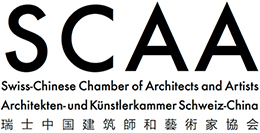[June.2019] Paysages Partagés 景 观 共 享
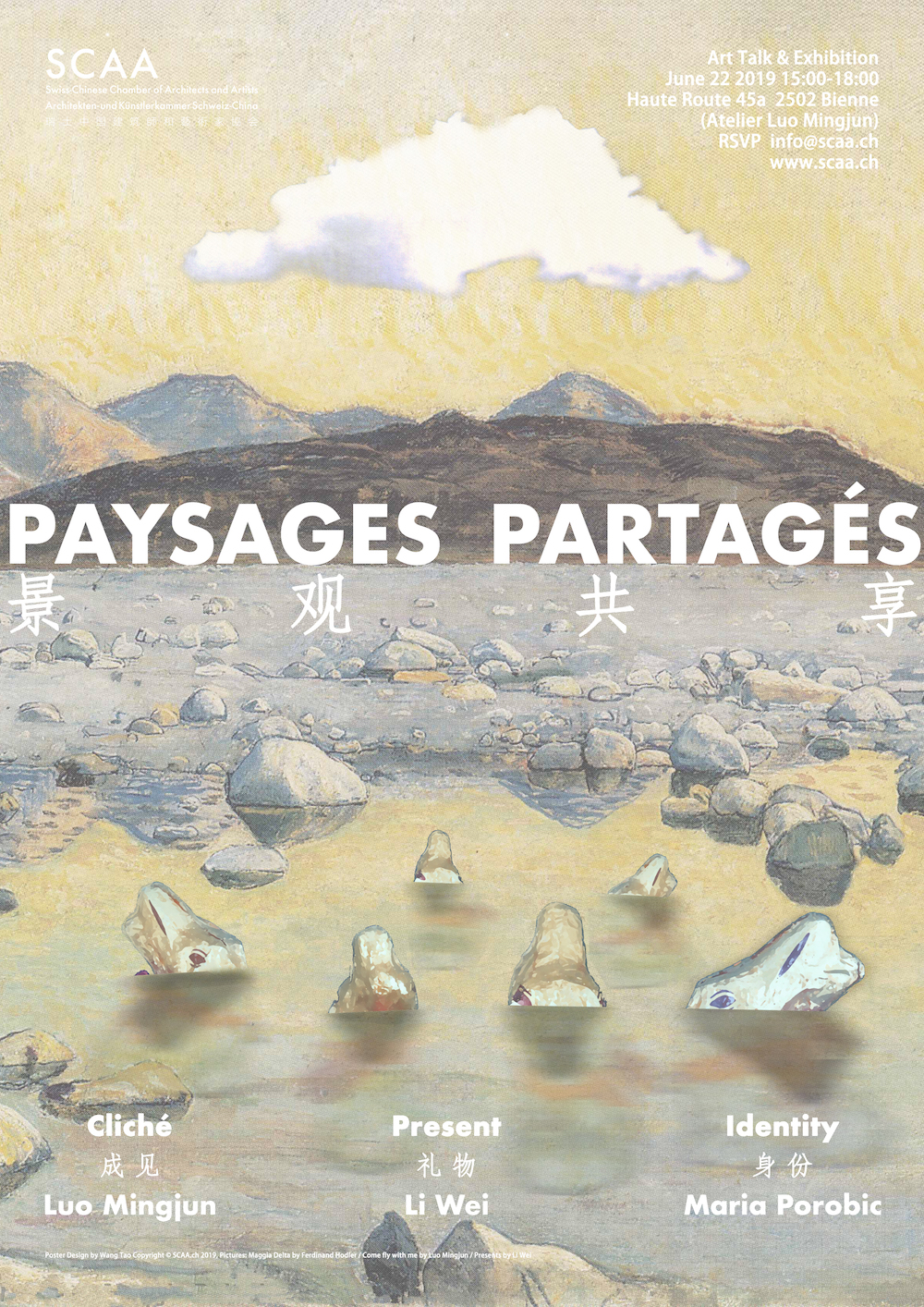
Paysages Partagés
景观共享
- 时间:2019年6月22日星期五15:00-17:00
- 地点: 罗明君工作室 Haute Route 45a, 2502 Bienne
- 主持:孙慕蘭
- 海报:汪弢
- 摄影:Raphael Kunz
- 英语报道:Tian Chiang
- 中文报道:杨晴川
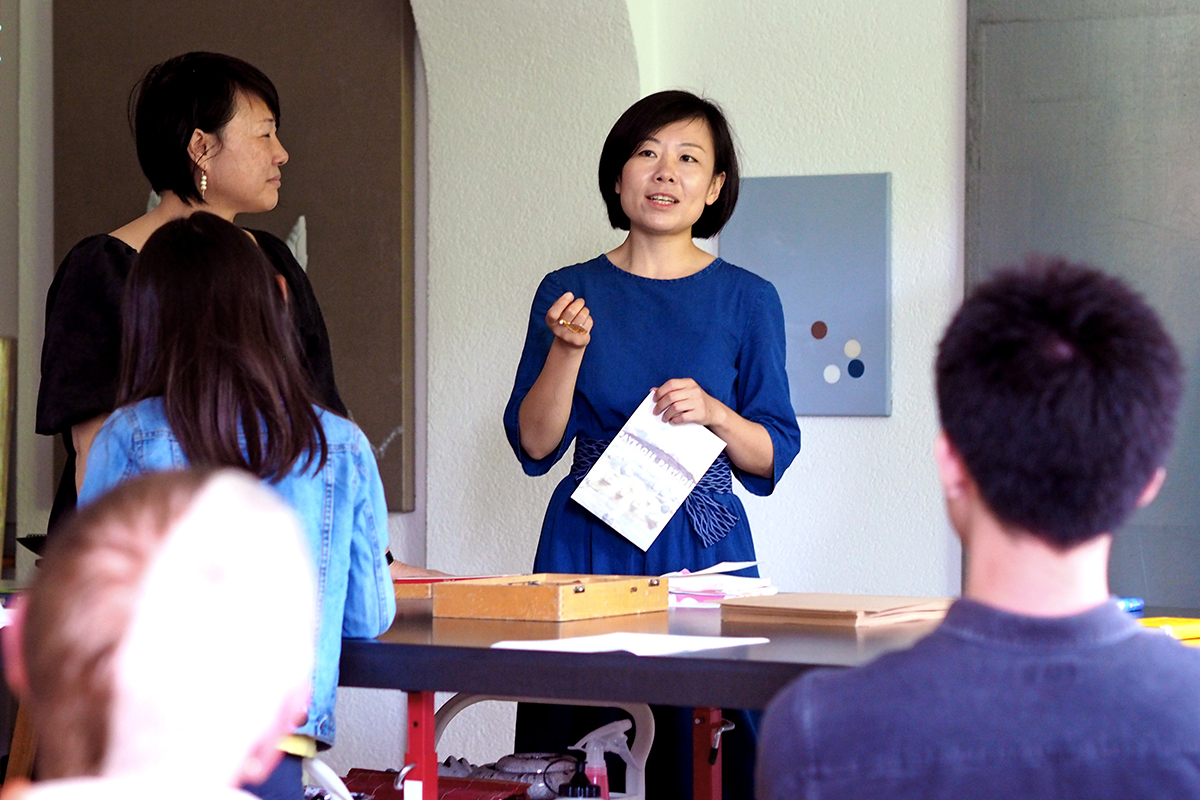
Photo credits Raphael Kunz. Copyright © SCAA.ch 2019
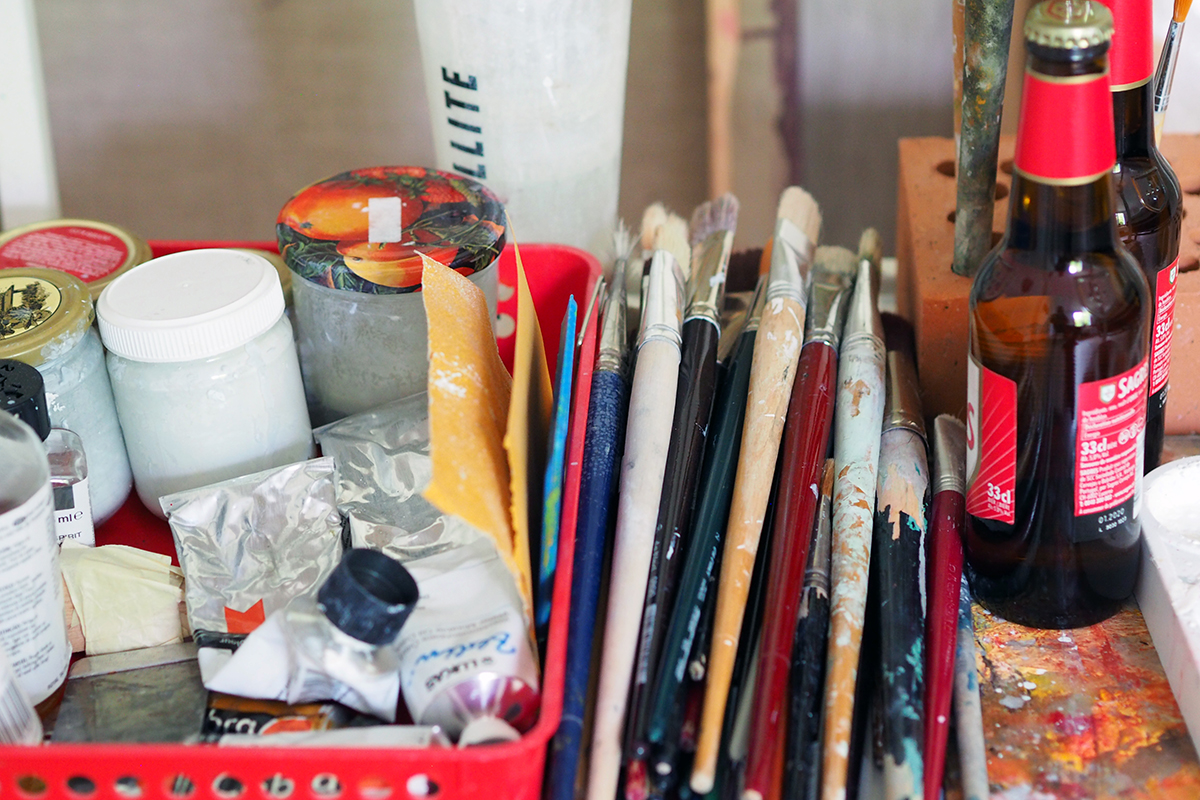
Photo credits Raphael Kunz. Copyright © SCAA.ch 2019
伴随着夏季的到来,SCAA在瑞士最大的双语城市比尔(Biel)举办了第一场活动。此次活动邀请了三位嘉宾在艺术家罗明君工作室就 “PaysagesPartagés – 共享风景” 这一主题展开了讨论。
SCAA started the summer season with an event at the atelier of artist Luo Mingjun in Biel, Switzerland‘s largest bilingual city. Three guests were invited to spark an open discussion on the topic of “Paysages Partagés – Shared Landscapes”.
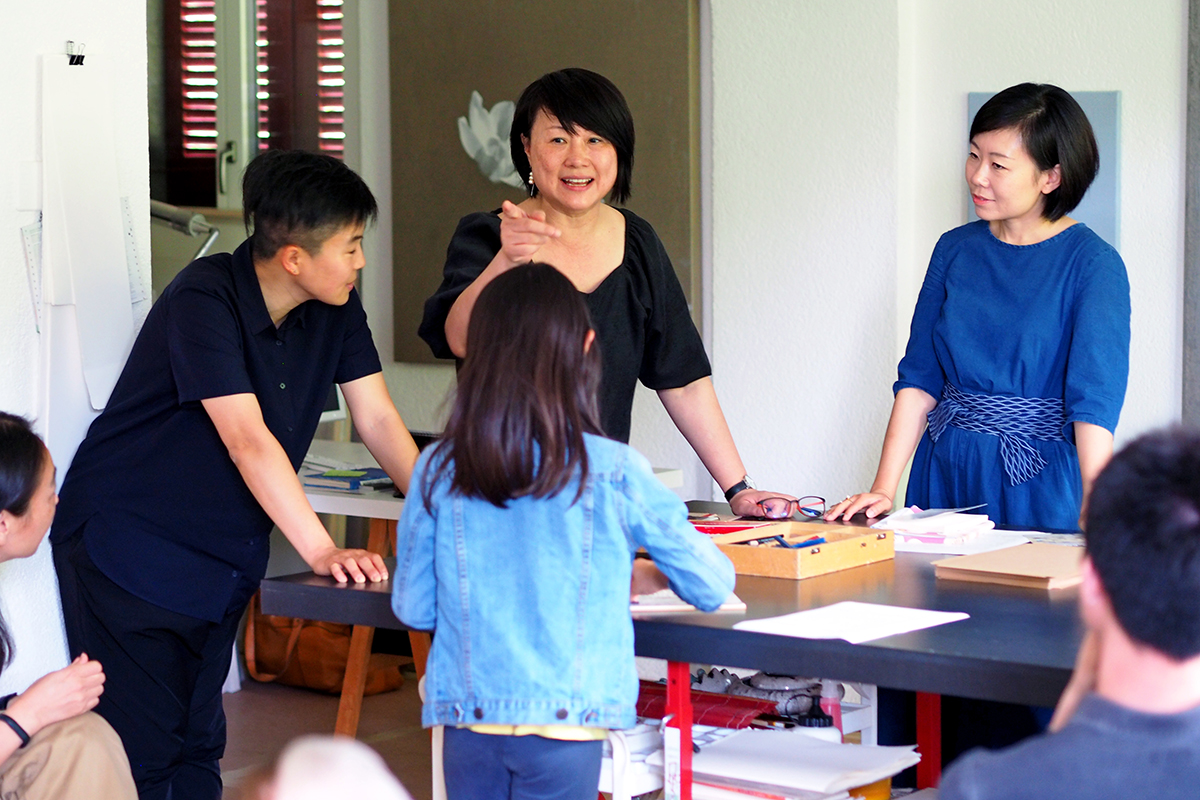
Photo credits Raphael Kunz. Copyright © SCAA.ch 2019
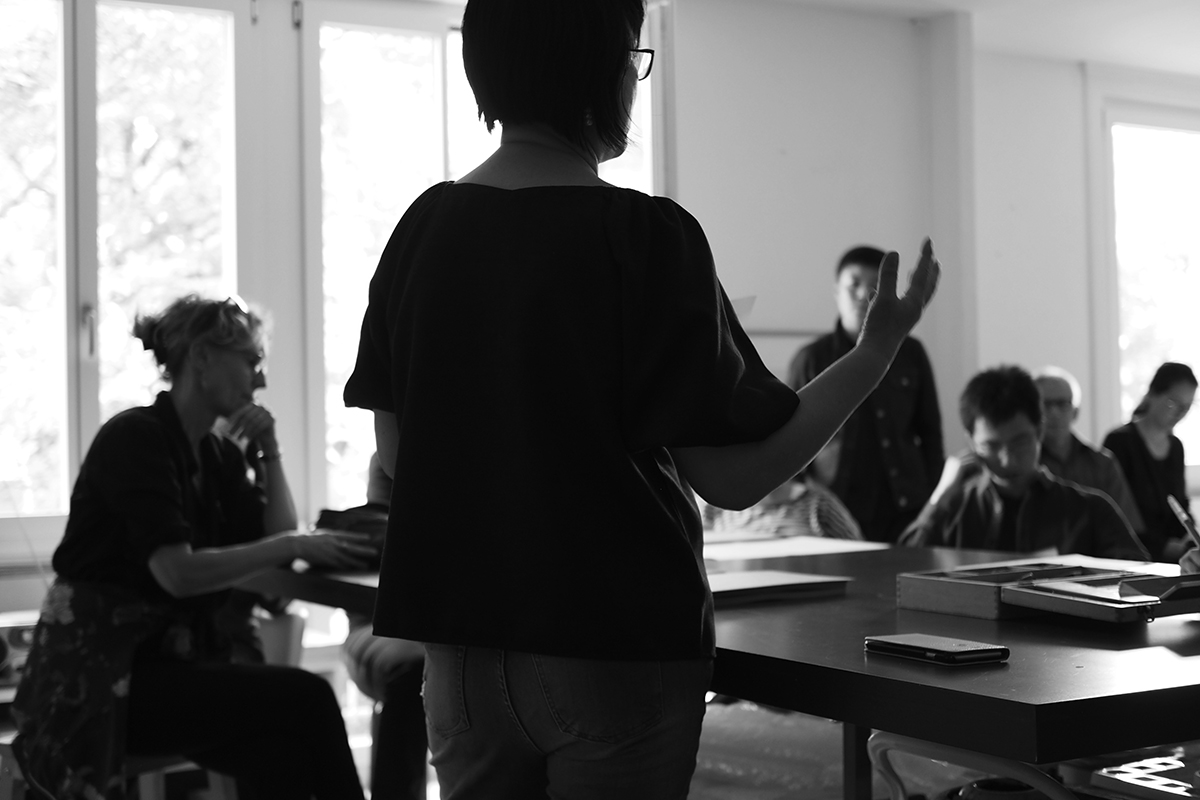
Photo credits Raphael Kunz. Copyright © SCAA.ch 2019
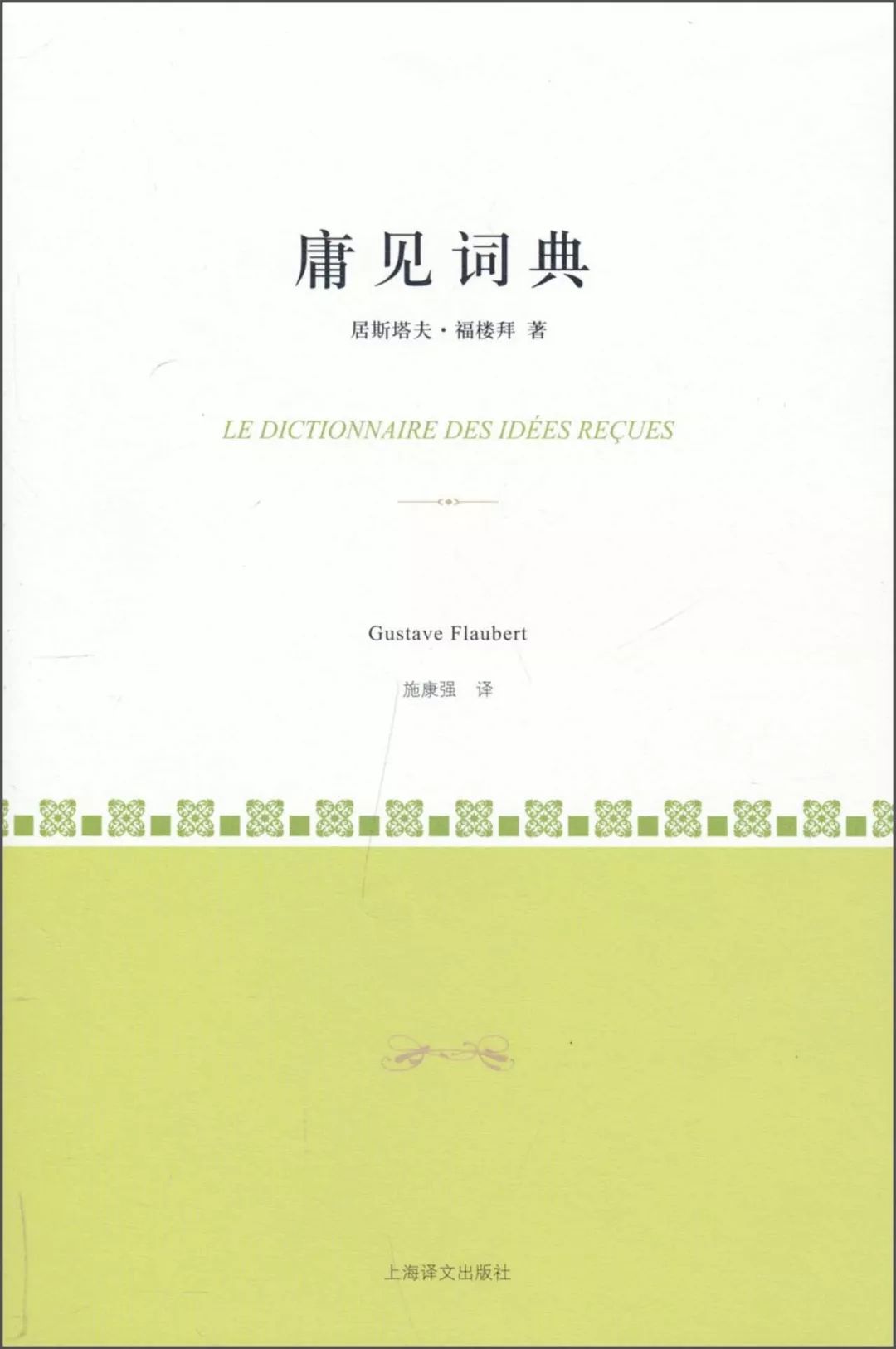
首先开讲的罗明君在瑞士生活了30多年,在瑞士和中国的双重景观中生活和成长。她选择了“Cliché”的主题来处理共享景观的理念。但她觉得十分困难,给这个法语词找一个对应的中文词汇,也许“误解”是其中的一个潜在含义。她试着将使用语言作为艺术创作的方式,并潜入法国小说家古斯塔夫·福楼拜的“庸见词典”。使用、改变、个性化这个文学作品,并通过创造一个新的互动景观使其恢复生机:她鼓励观众参与她的新艺术作品,让观众选择字典里的单词并以“庸见”为出发点创建新的定义,她之后会以此进行后续的创作。通过这种“翻译”,罗明君在一个远离她出生地的国家里处理她失去语言的感觉。
Having lived in Switzerland for more than 30 years, Luo had worked and grown between Swiss and Chinese landscapes. She chose the theme of “Cliché” to engage with the idea of Shared Landscapes. It was impossible for her to find a single-worded translation of this French term to Chinese but she found that “misunderstanding” was an underlying facet of it. Encouraged to apply language as a working art, she dived into the “Dictionary of Received Ideas” by French novelist Gustave Flaubert. She used, changed, personalized this piece of literature and brought it back to life by creating a new interactive landscape: She encouraged the audience to participate in her new art piece by letting them pick words of the dictionary and create new cliché-driven definitions that she would continue to work with. Through this kind of “translation” Luo processes her feeling of losing language since living in a country so far from her birthplace.
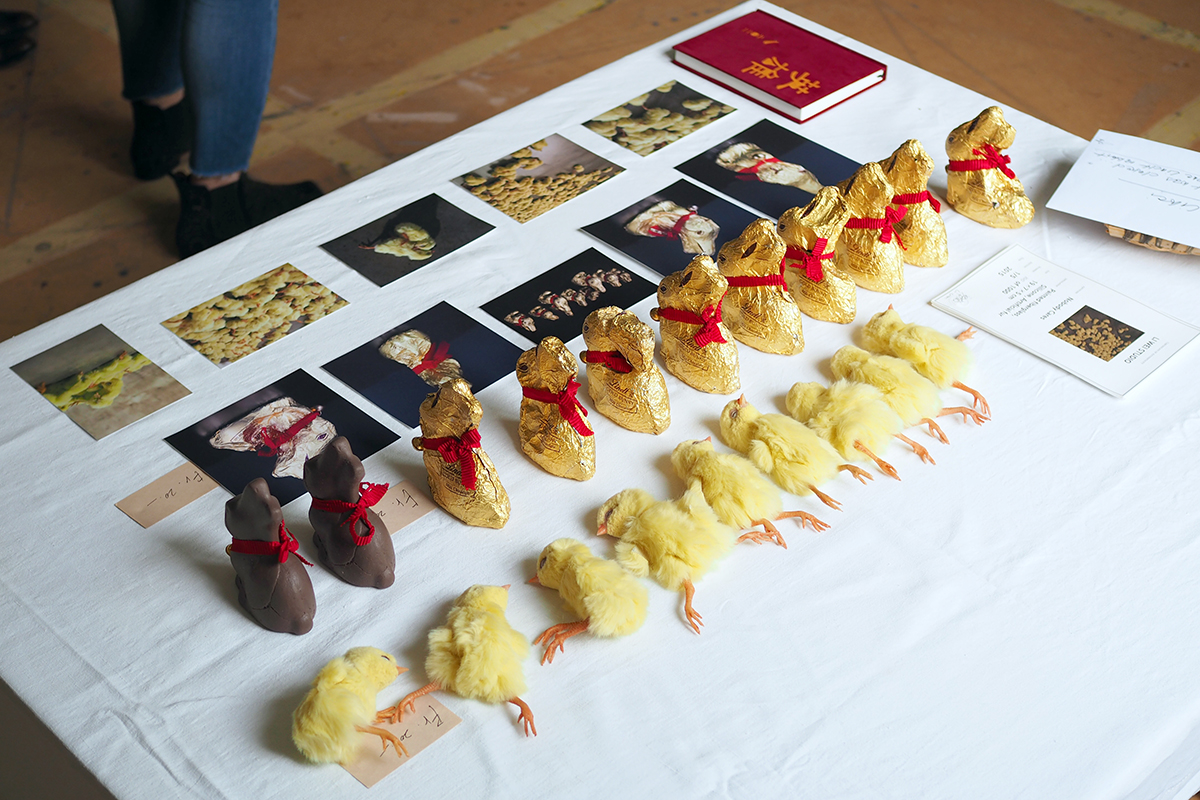
Photo credits Raphael Kunz. Copyright © SCAA.ch 2019
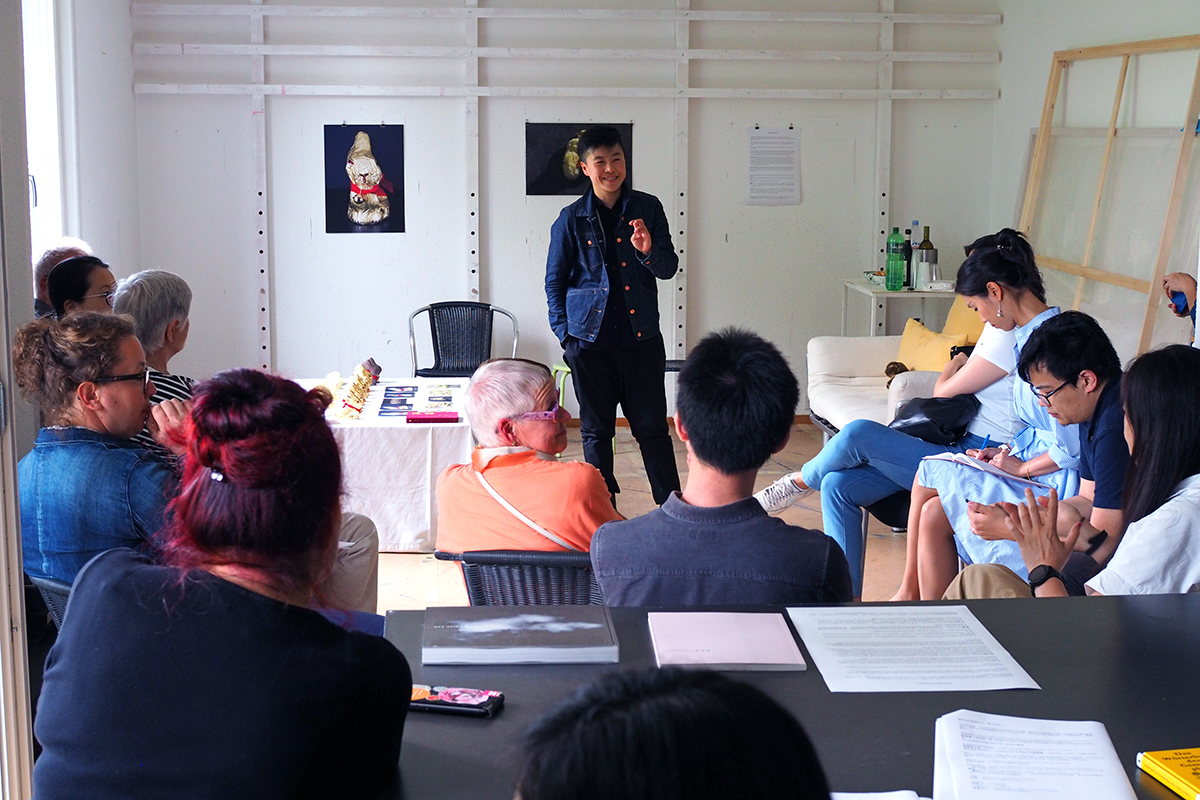
Photo credits Raphael Kunz. Copyright © SCAA.ch 2019
黎薇在罗明君的工作室展示了一个小展览。一个小摊位上摆着一些不寻常的东西:世界著名的金色Lindt兔子(瑞士知名巧克力品牌的典型产品)和毛茸茸的黄小鸡。乍一看它们都像你可以买到的短暂礼物,来自瑞士的巧克力和一种易于照顾的脆弱动物(中国父母常给孩子的礼物)。基于黎薇对“礼物”的独特理解,他改变了这些对象的属性。它们由耐用的硅胶制成,将永远存在。当中国向西方市场开放时,黎薇学校里最流行的东西是五彩缤纷包装的礼物。可这只关乎包装,与礼物的内容无关。那时的黎薇是一个安静和内向的人,在同学们面前显得奇怪,因此从未收到如此奇特的礼物。直到班里的学习委员需要他帮忙画画以参加比赛时,作为提供帮忙的回报,黎薇才第一次收到了这样的礼物。通过将礼物转变为需求,他终于通过商业交换成为了社会景观的一部分。黎薇说个人是如此弱小,毫无机会逃离社会环境,而这为他的展览增添了些许永恒的味道。
Li Wei presented a small exhibition within Luo‘s atelier space. A little market stand displayed some unusual objects: the world-famous golden Lindt rabbits and yellow-furred dead chicklets. At first sight they looked like the ephemeral presents you can buy, chocolate from Switzerland and a fragile animal to care for (which Chinese parents use to give their children). But with his very unique understanding of a “Present”, Li had changed these objects. They were made of durable silicone, bound to last forever. When China opened up to Western goods, one of the most celebrated things at Li‘s school had been colourfully packed presents. It was all about the wrapping and gesture but not about the content of the gifts. Quiet and introverted as Li was, he had always appeared weird to his fellow schoolmates and had never received such a fancy present; until the day that a school-mate needed help in drawing and Li offered him the trade against a present. By turning the present into a demand, he finally became part of the social landscape through this business exchange. Li finds there is no chance to escape from a social context and therefore added an eternal flavour to his exhibition.
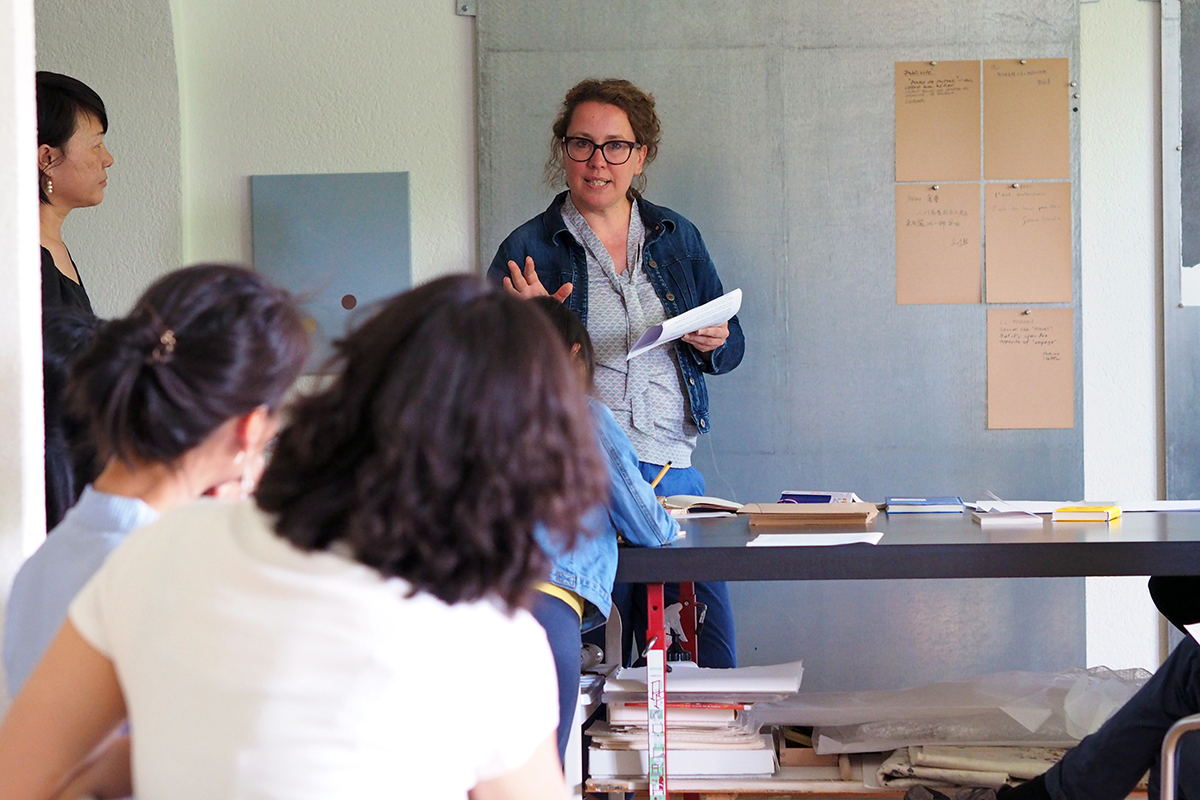
Photo credits Raphael Kunz. Copyright © SCAA.ch 2019
艺术历史学家 Marina Porovic 分析了罗明君和黎薇在人生经历和艺术作品之间的差异,但她也看到了两位艺术家在对物体意义(如字典或巧克力兔)进行解构时的相似性。两人都在处理社交和文化错位的感觉,但与此同时仍提供了一个分享和加入的空间。对于克罗地亚出生的 Marina 来说,两位艺术家和她自己的共同点是“身份”。她发现在不同的环境中扮演不同角色和接受差异是有亲和力的。
Art historian Marina Porovic analysed the differences between the biographies and artworks of Luo Minjun and Li Wei but she also saw a similarity in how both deconstructed meanings of objects (like a dictionary or chocolate rabbit). Both worked with a feeling of social and cultural dislocation but still offered a space to share and join in. For Croatian-born Marina the common denominator of the two artists and herself was “Identity”. She found that there was an affinity in playing roles in different contexts and in the acceptance of differences.
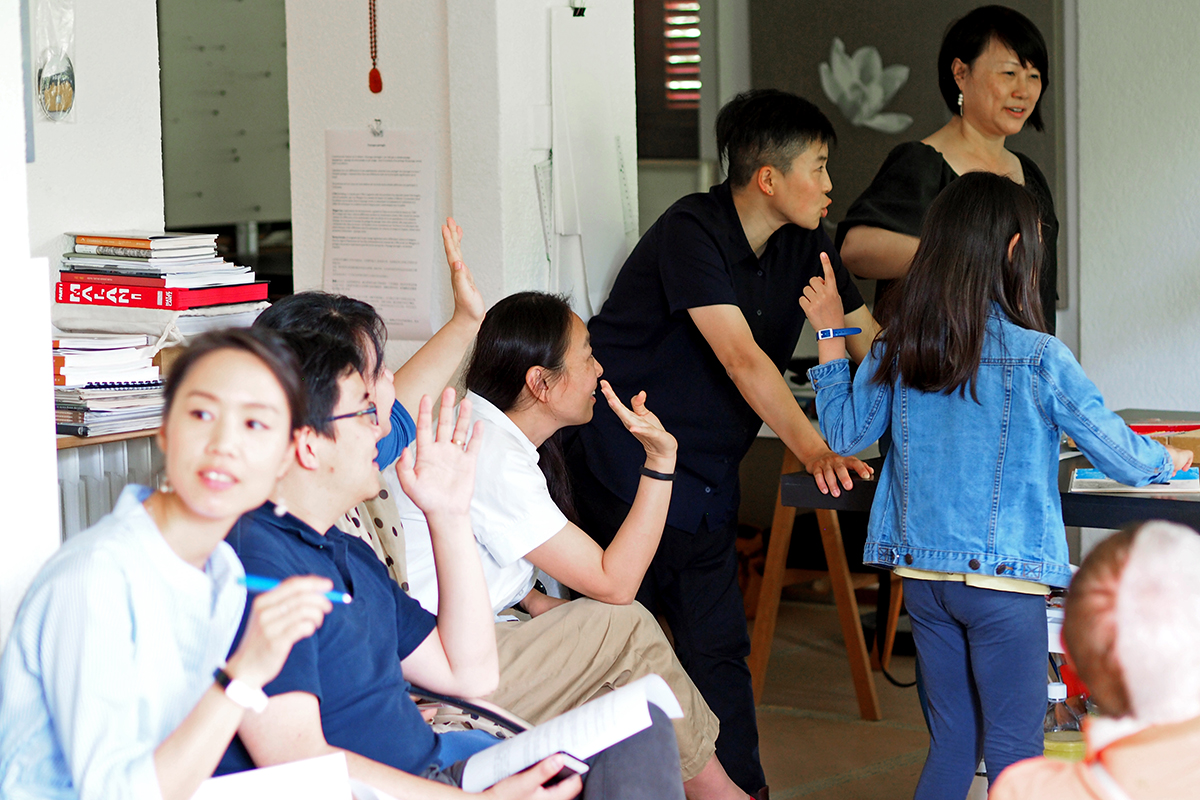
Photo credits Raphael Kunz. Copyright © SCAA.ch 2019
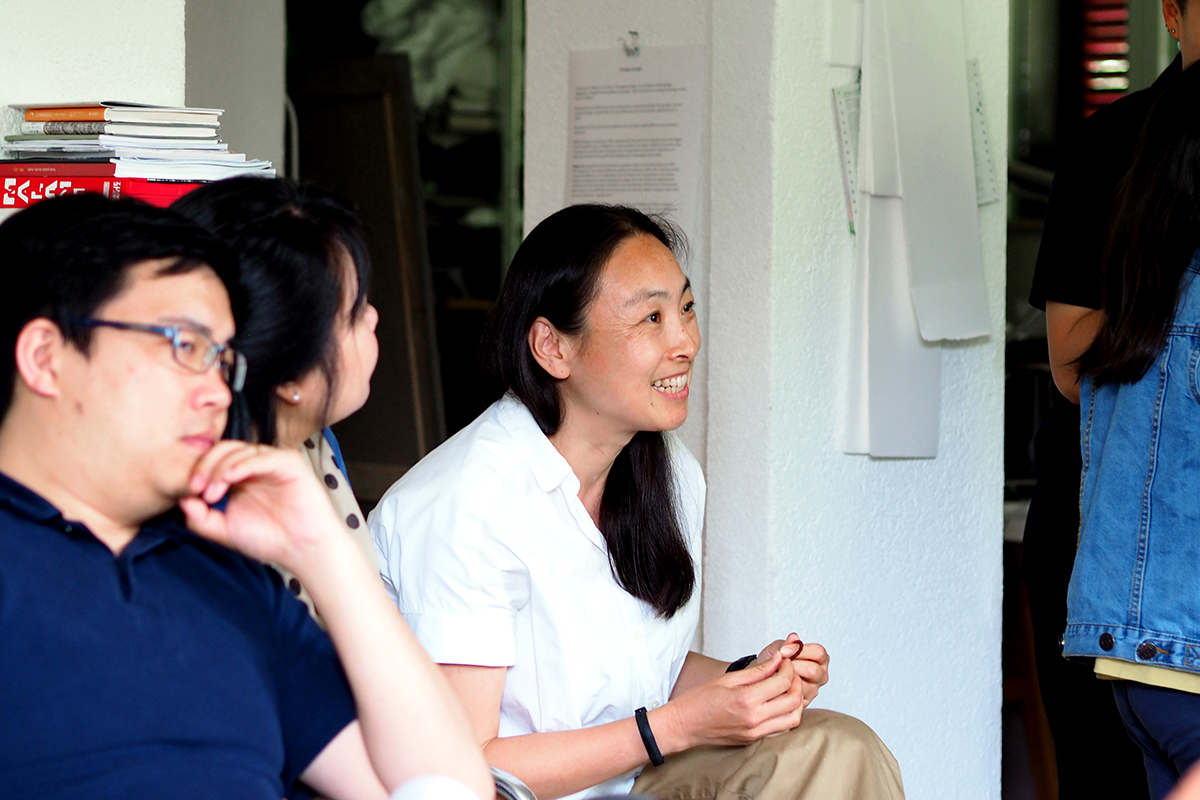
Photo credits Raphael Kunz. Copyright © SCAA.ch 2019
SCAA活动本身就是一个共享景观的范例。观众并没有共同的母语,他们分别来自中文(8)、德语(8)、法语(2)、克罗地亚(1)甚至外太空(1:黎薇),因为语言的差异,在交流的过程中无可避免的失去了大量的信息,尽管如此,每个参与者依然通过讨论和交流,开辟走向新视野的新道路。
The SCAA event itself was a paradigm of a Shared Landscape. The audience did not have a mutual mother language. Natives from Chinese-speaking (8), German-speaking (8) and French-speaking (2) areas, from Croatia (1) and even outer space (1) had decided to come together in spite of the compromise to miss a lot of information just through language differences. Still every participant joined the discussions and activities and thus took part in setting the path to new horizons.
花絮:
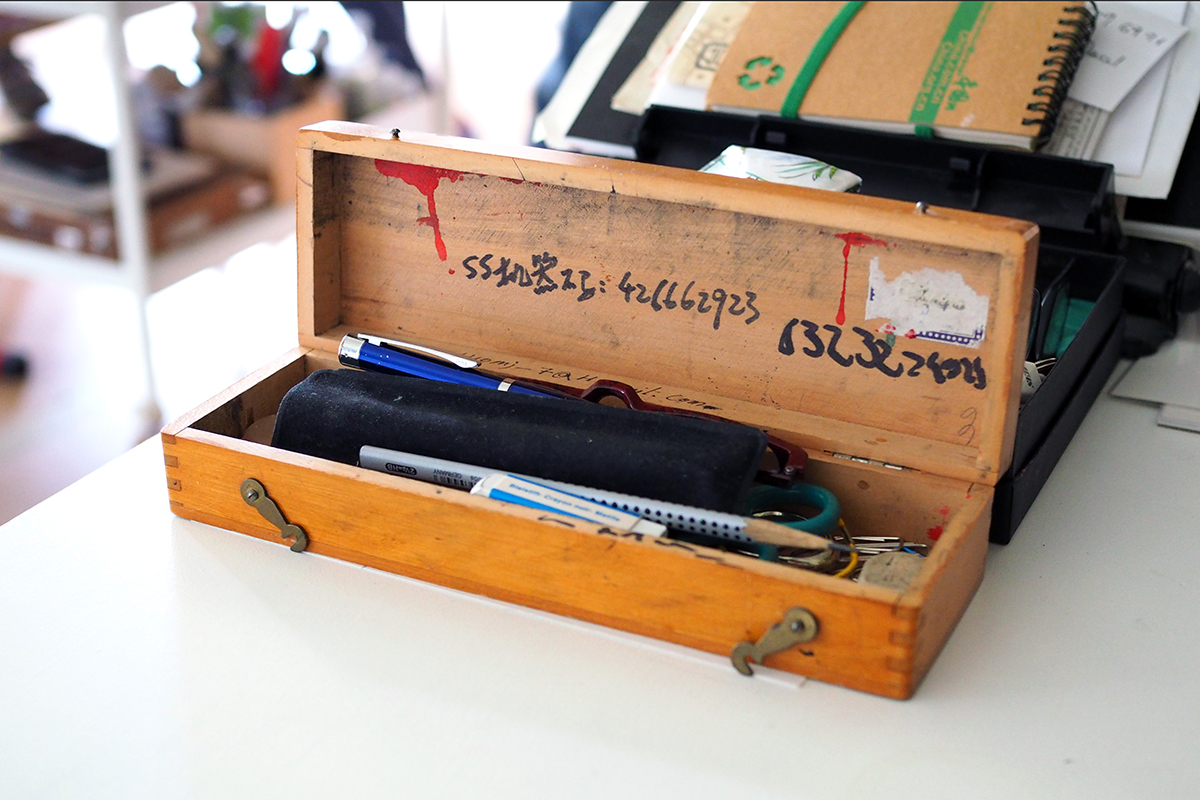
Photo credits Raphael Kunz. Copyright © SCAA.ch 2019
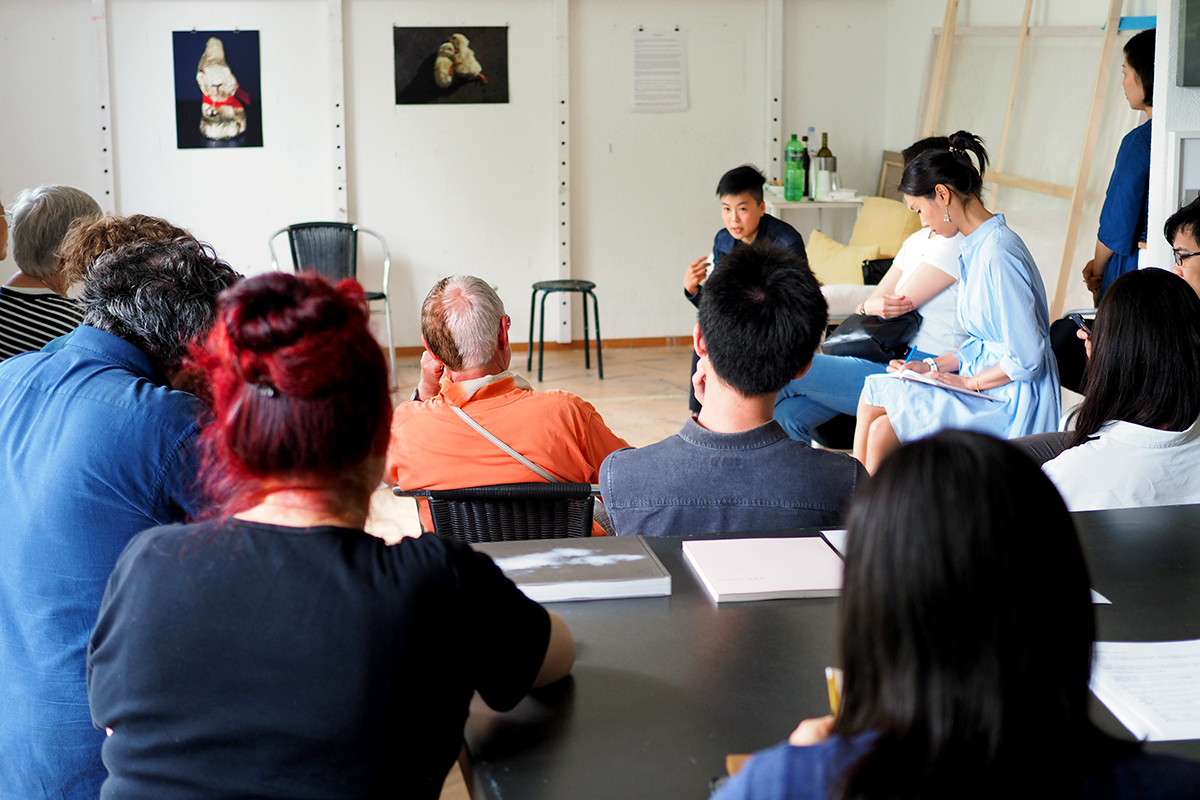
Photo credits Raphael Kunz. Copyright © SCAA.ch 2019
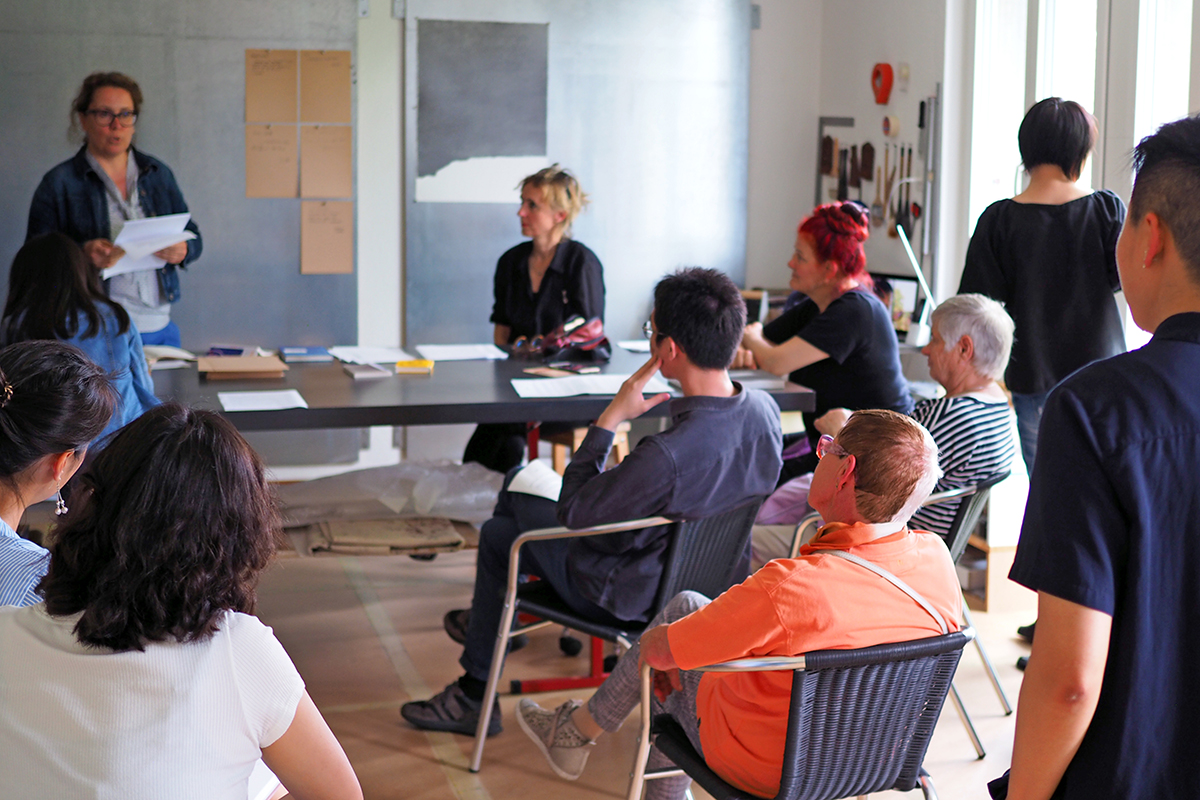
Photo credits Raphael Kunz. Copyright © SCAA.ch 2019
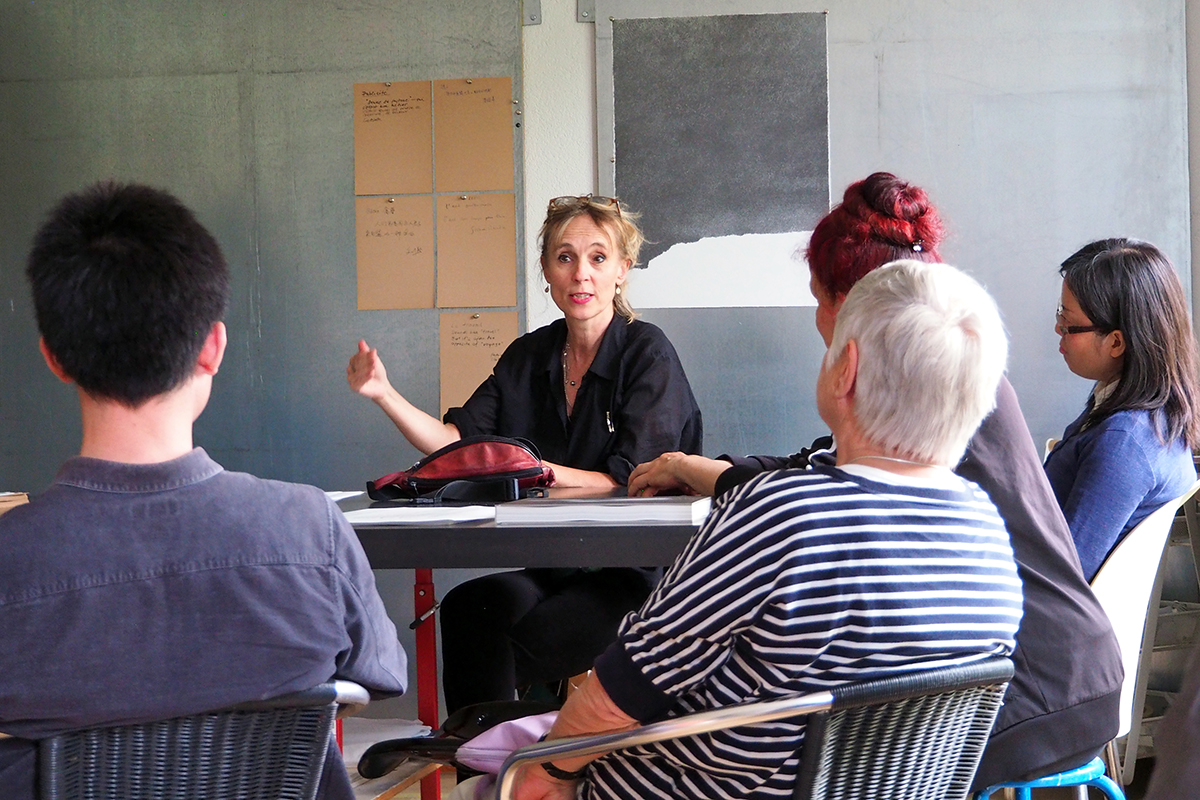
Photo credits Raphael Kunz. Copyright © SCAA.ch 2019
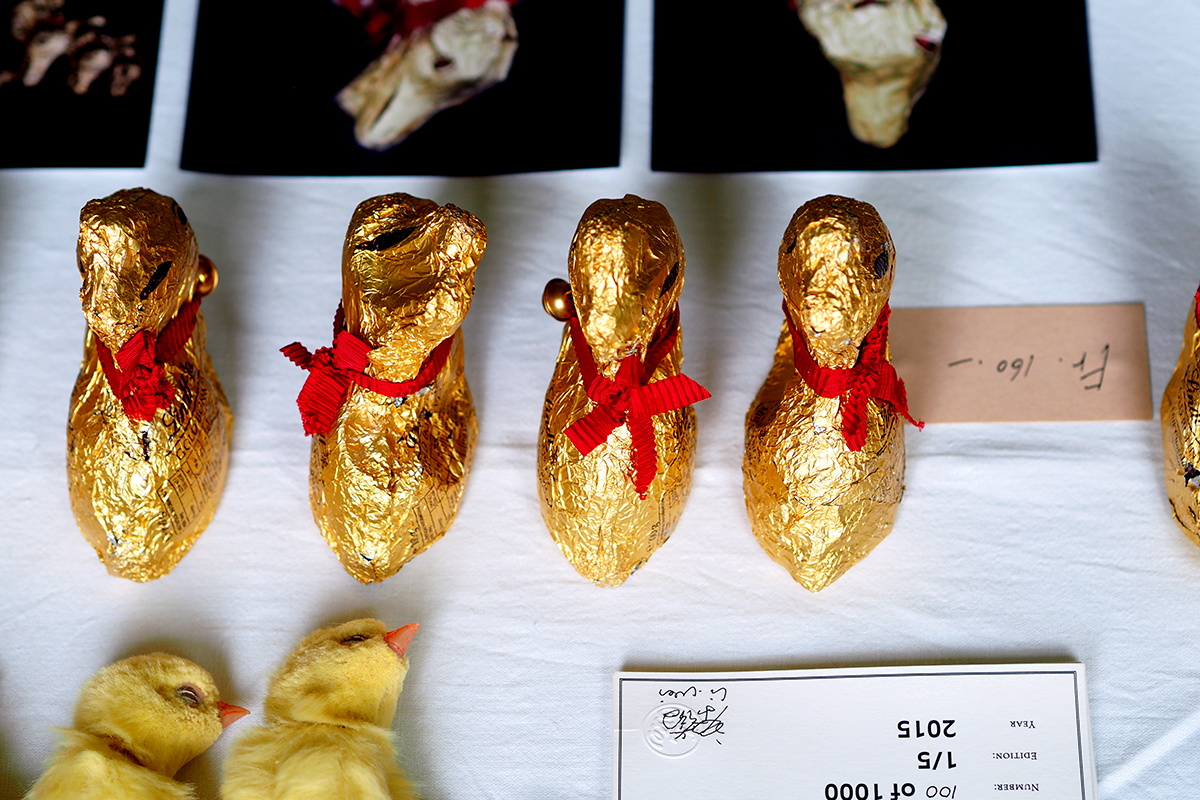
Photo credits Raphael Kunz. Copyright © SCAA.ch 2019
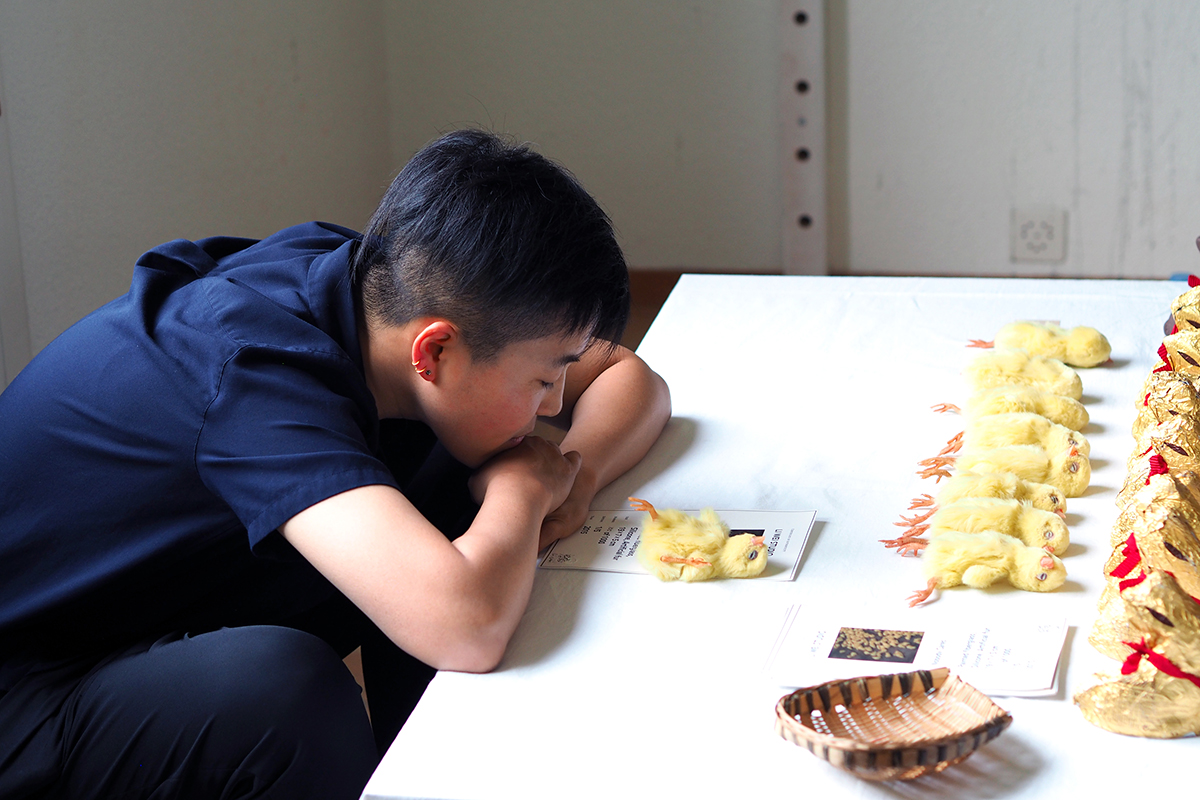
Photo credits Raphael Kunz. Copyright © SCAA.ch 2019
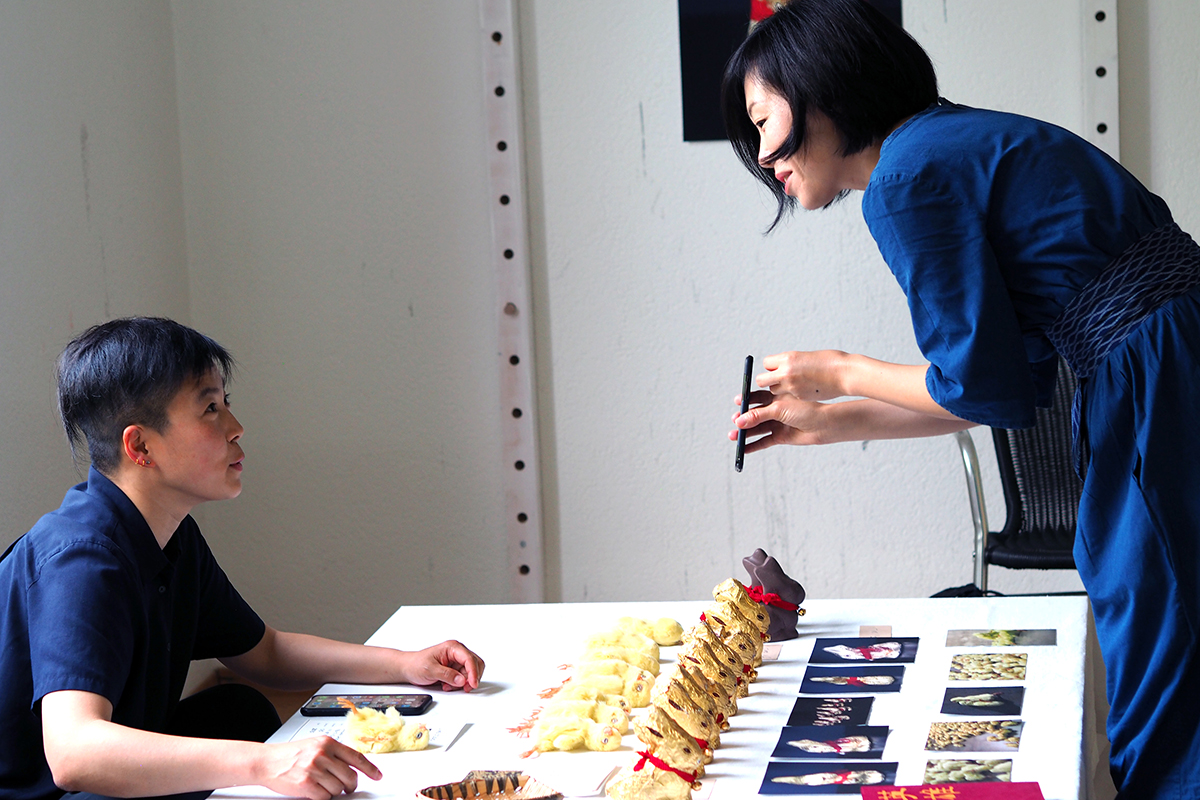
Photo credits Raphael Kunz. Copyright © SCAA.ch 2019
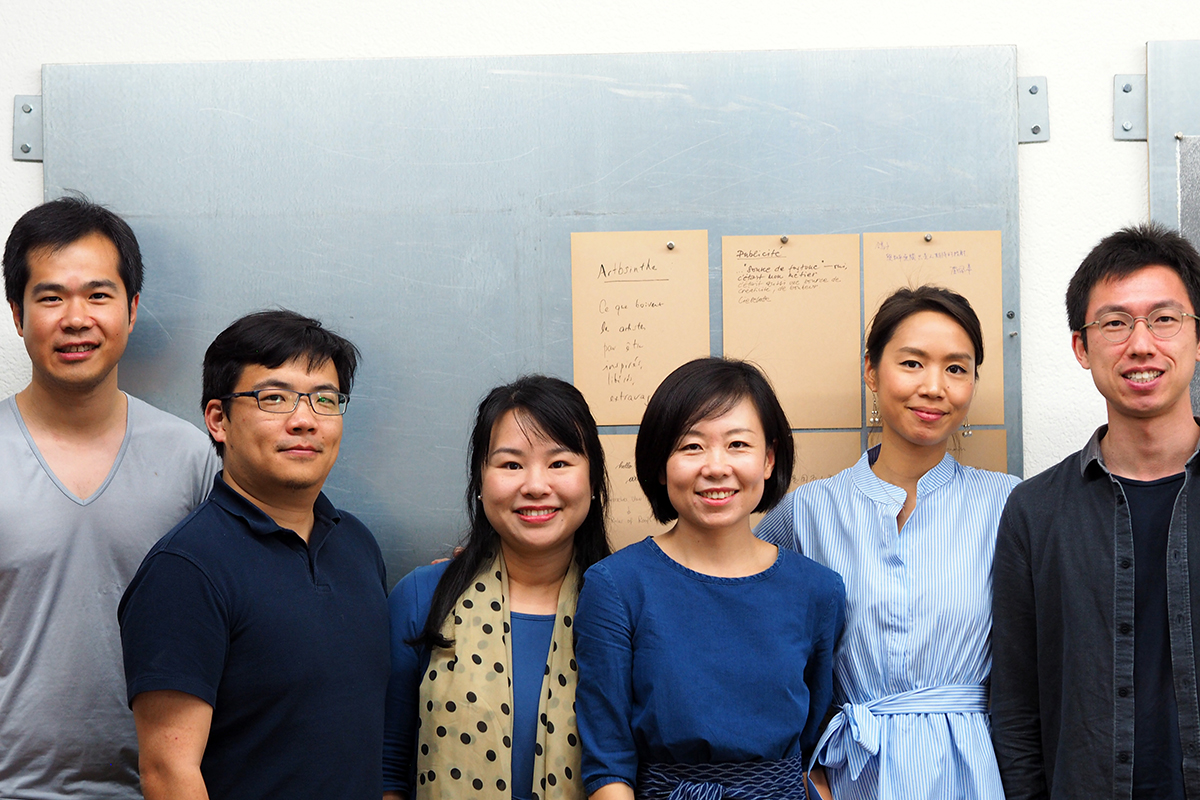
Photo credits Raphael Kunz. Copyright © SCAA.ch 2019
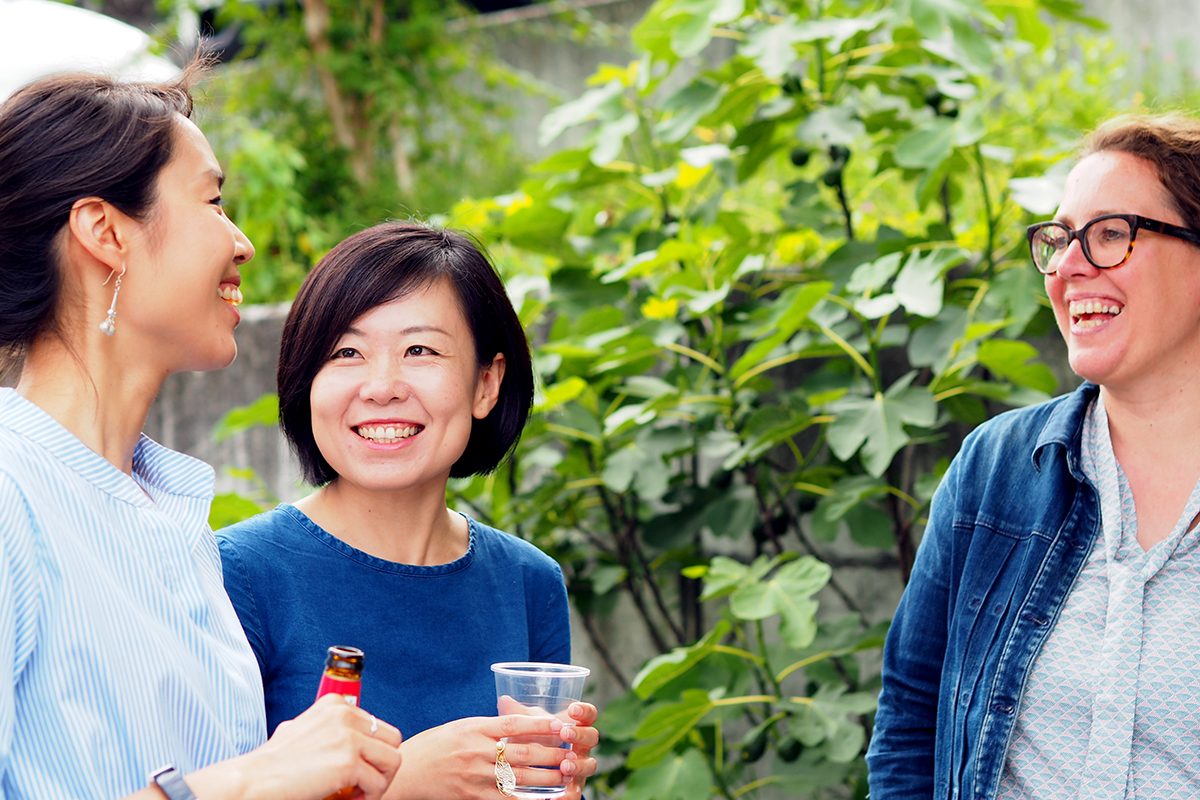
Photo credits Raphael Kunz. Copyright © SCAA.ch 2019
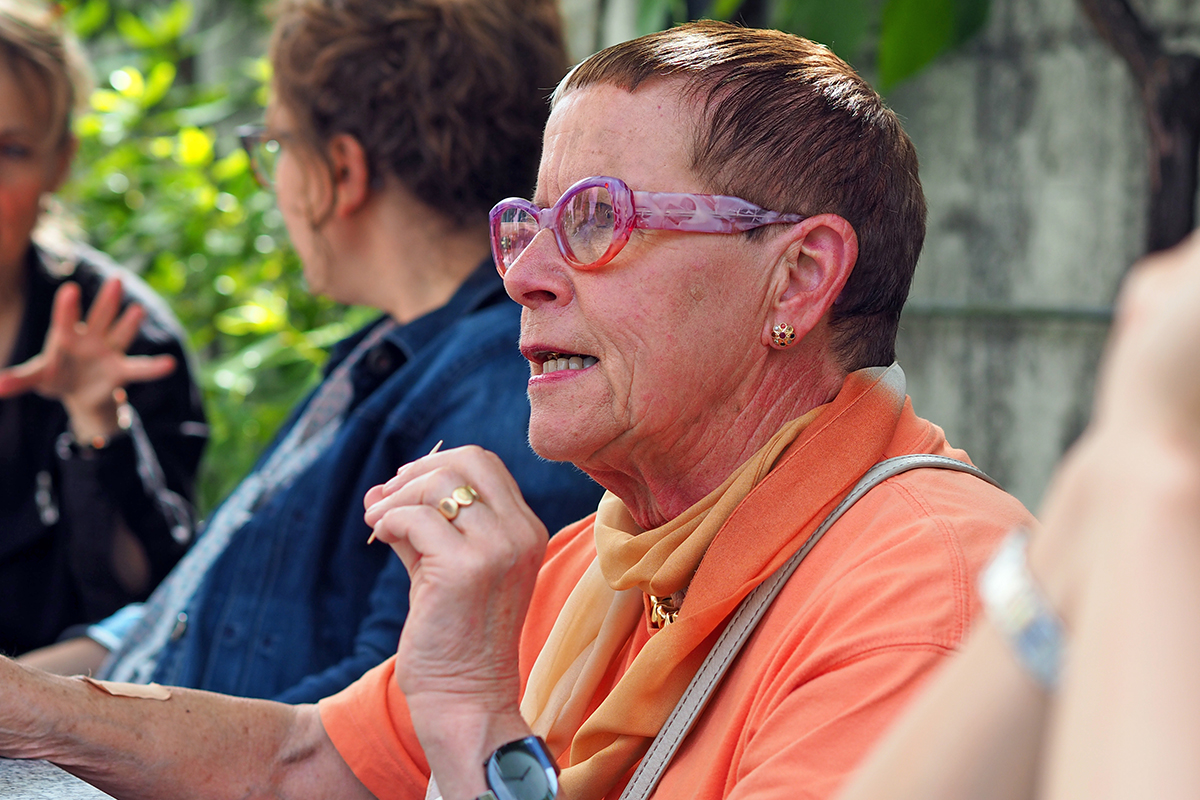
Photo credits Raphael Kunz. Copyright © SCAA.ch 2019
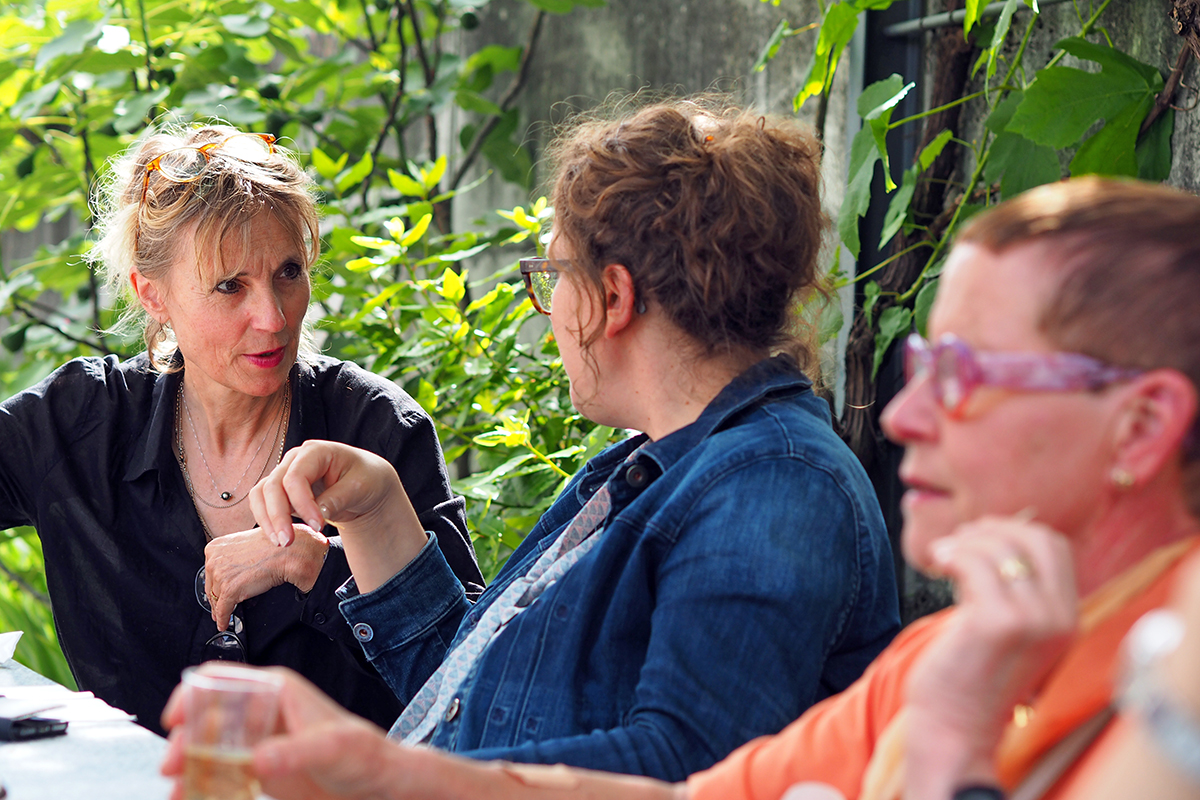
Photo credits Raphael Kunz. Copyright © SCAA.ch 2019
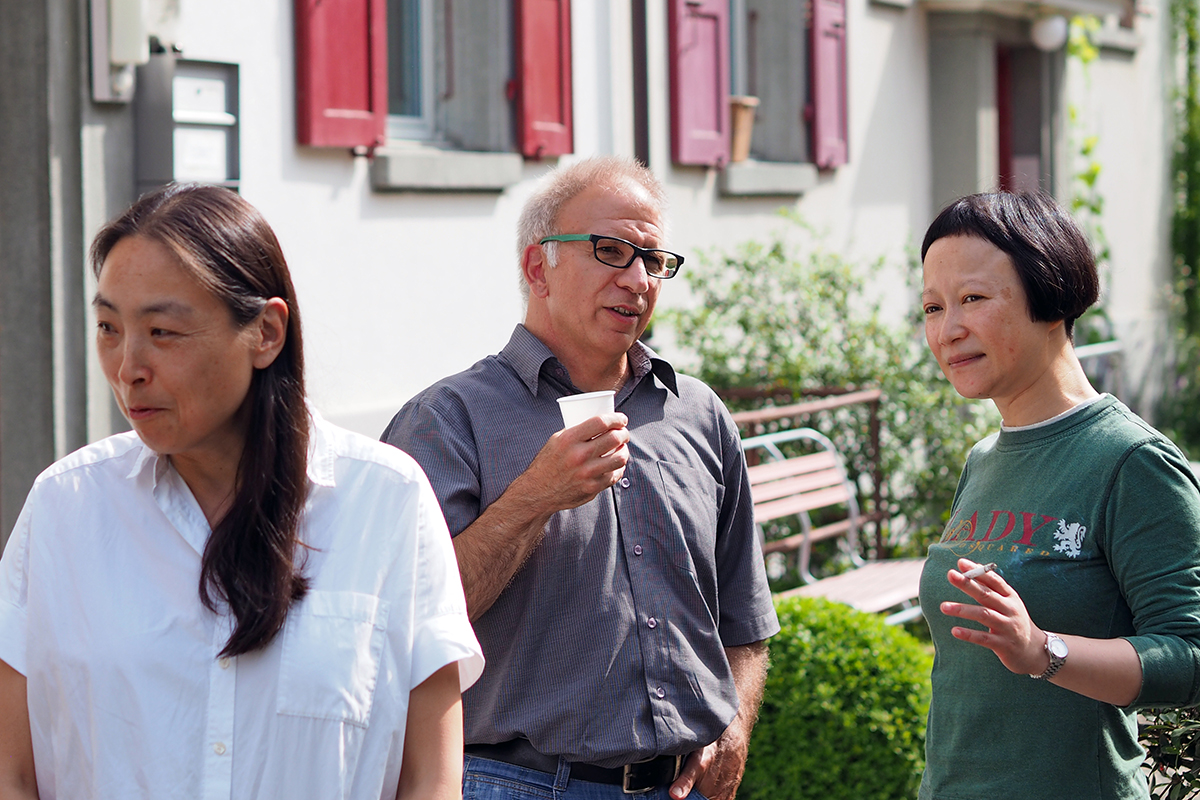
Photo credits Raphael Kunz. Copyright © SCAA.ch 2019
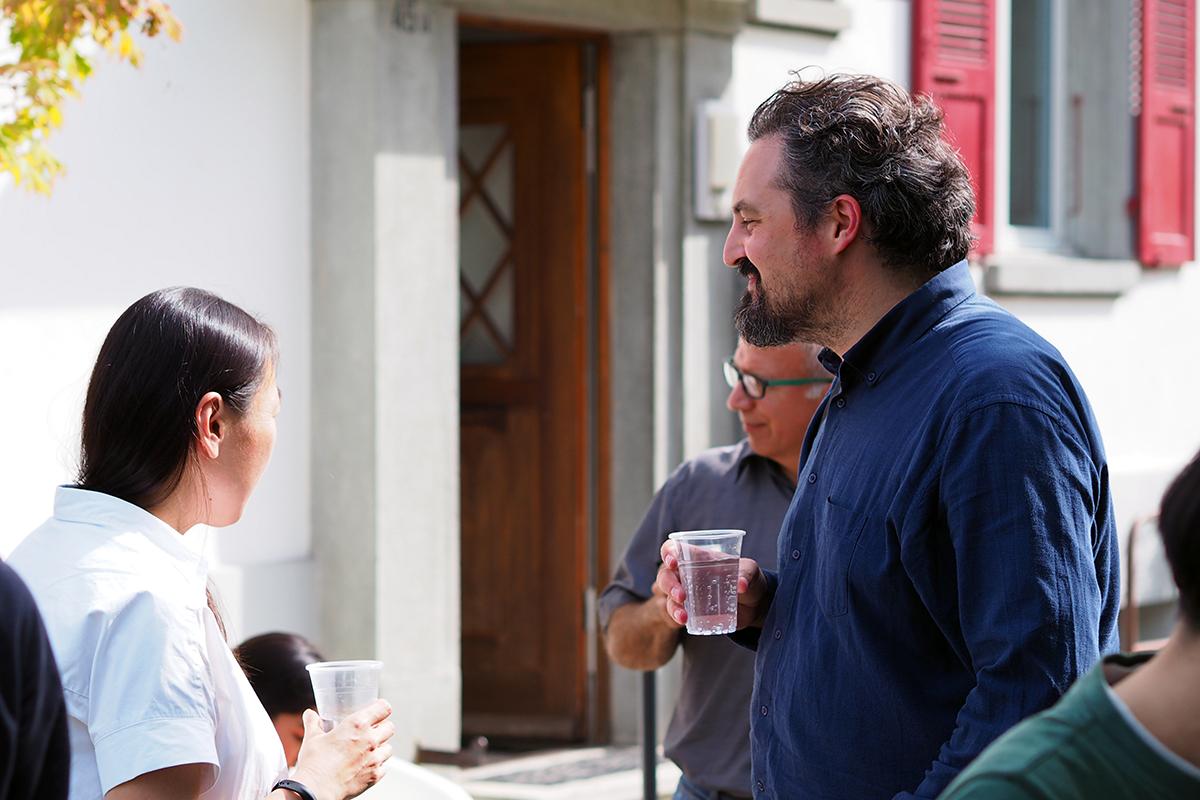
Photo credits Raphael Kunz. Copyright © SCAA.ch 2019
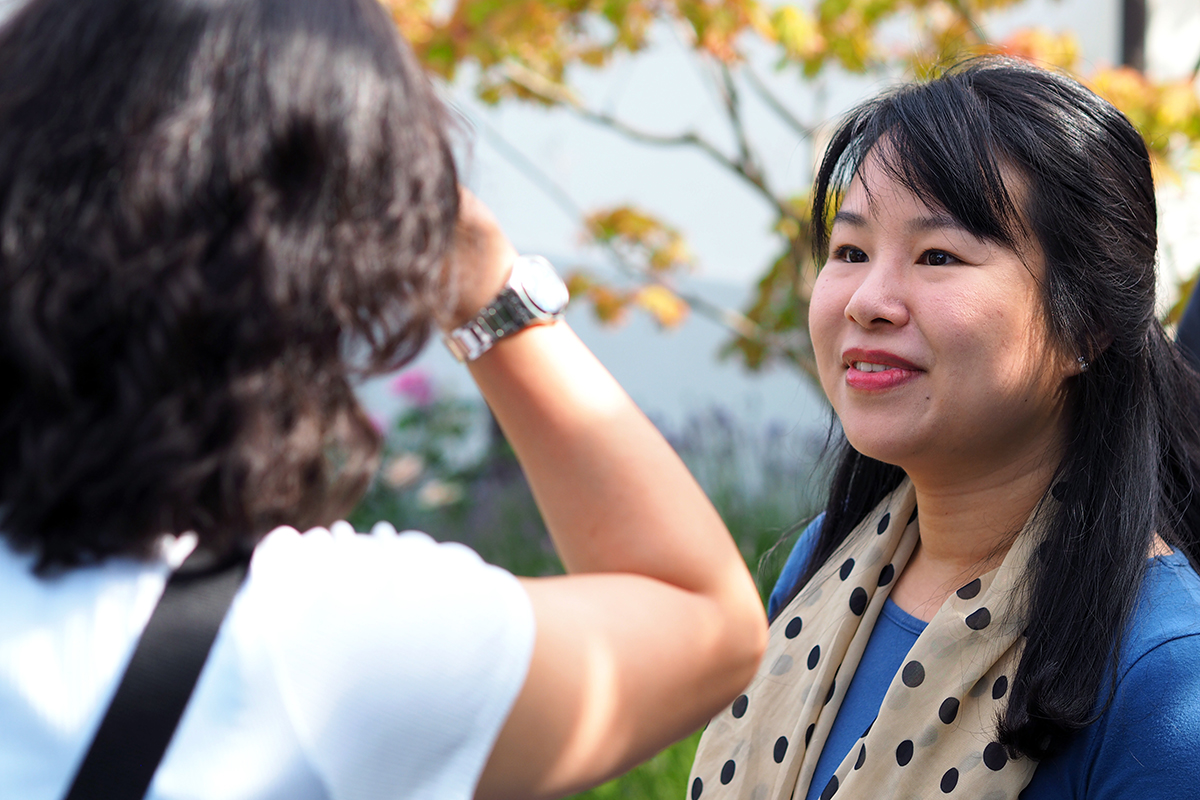
Photo credits Raphael Kunz. Copyright © SCAA.ch 2019
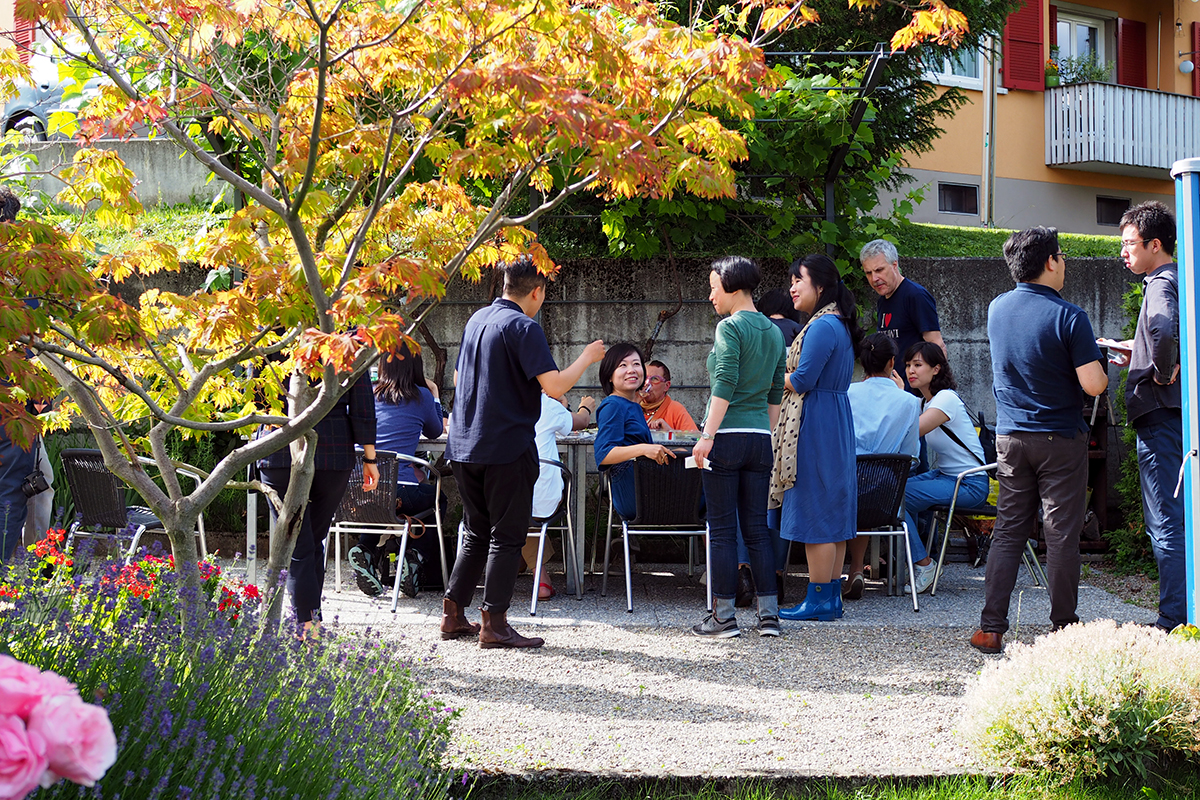
Photo credits Raphael Kunz. Copyright © SCAA.ch 2019
